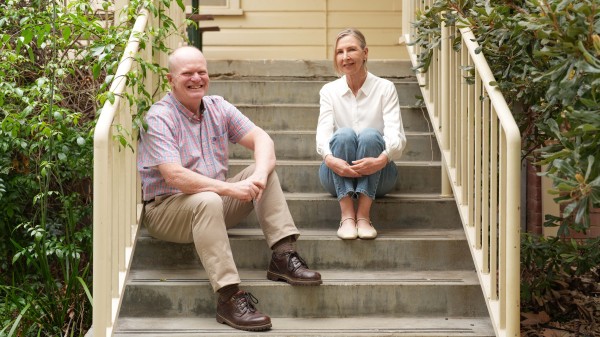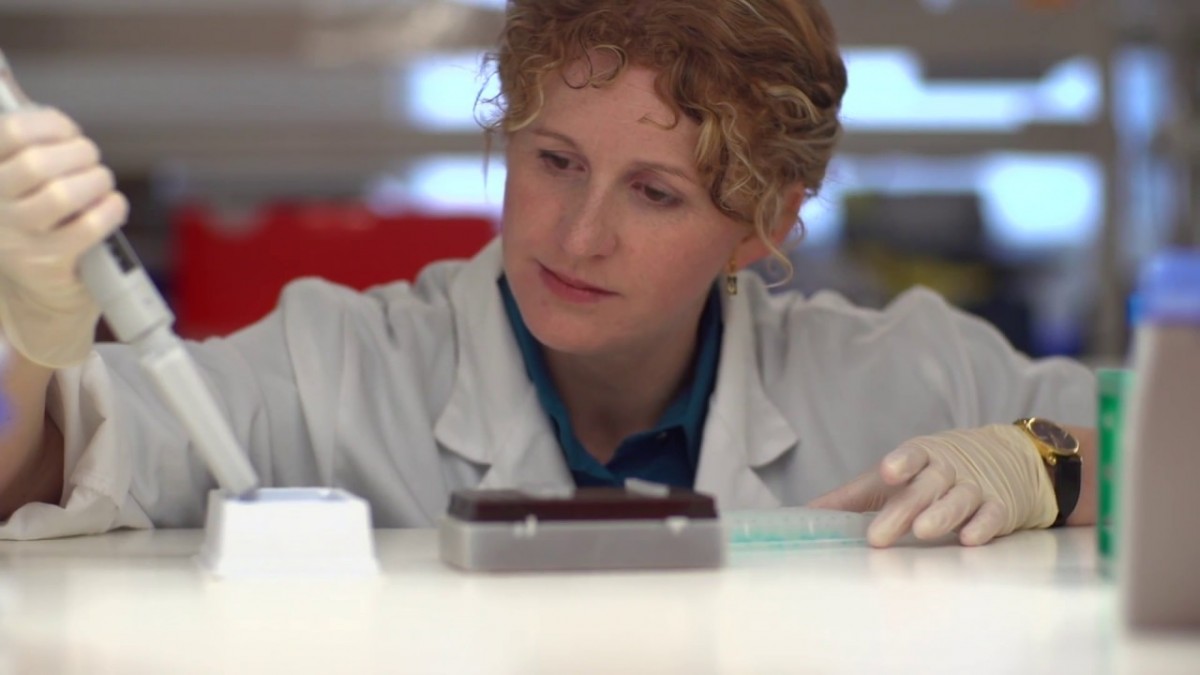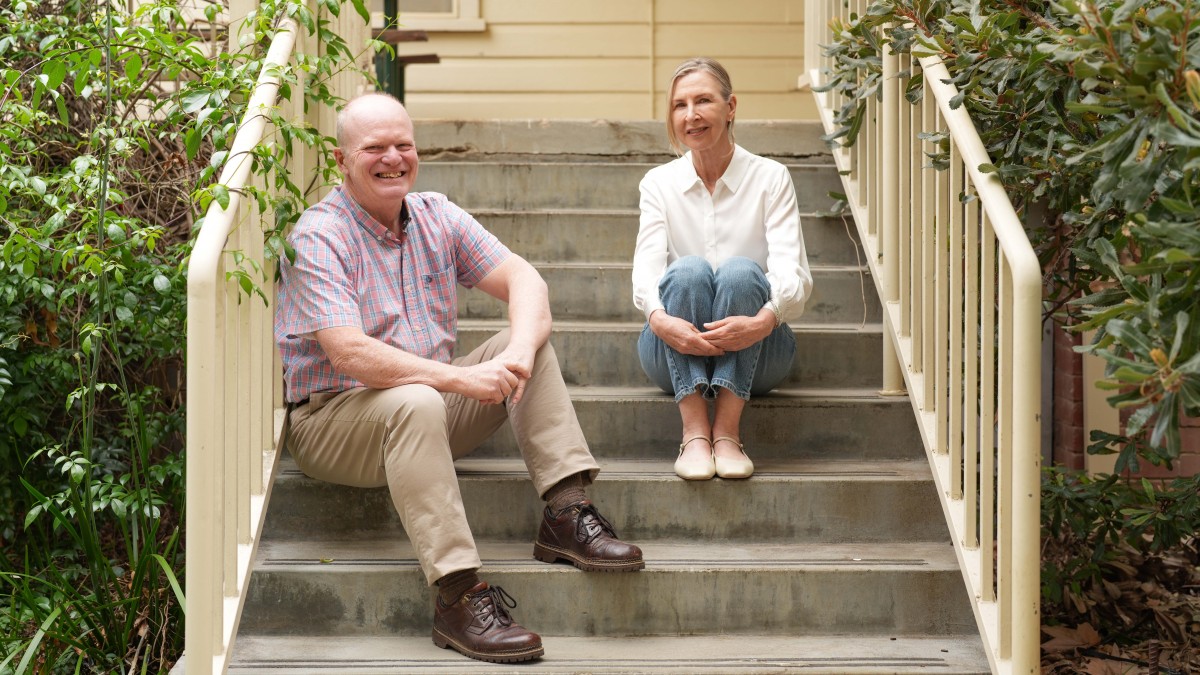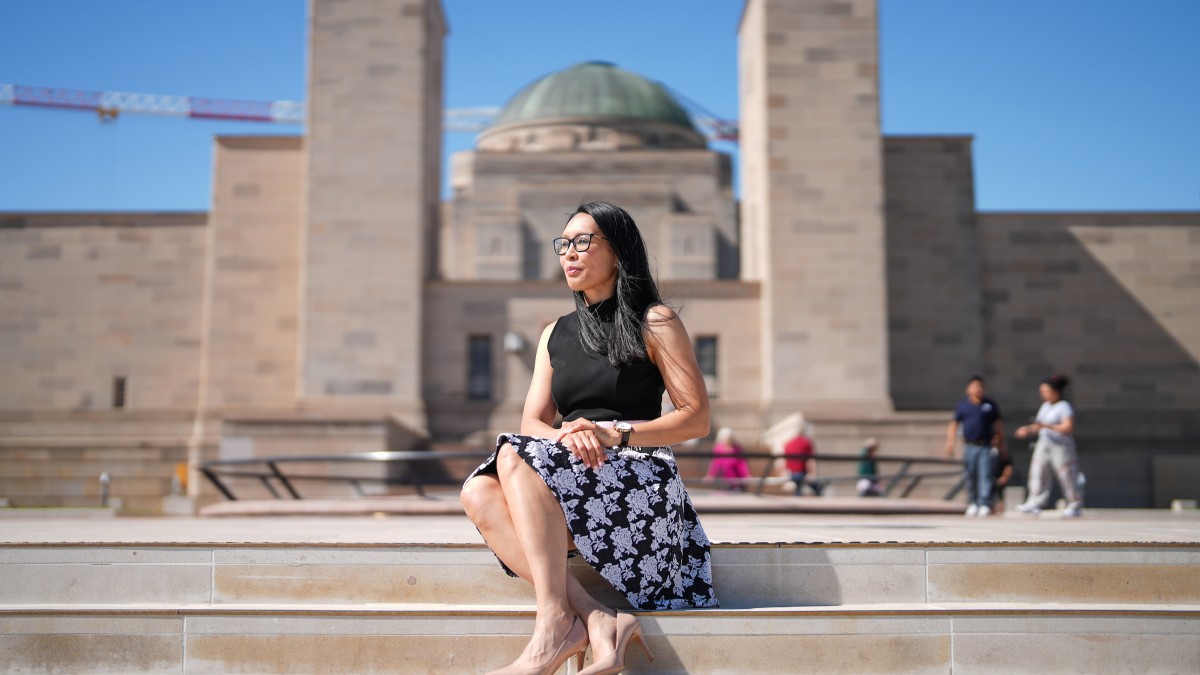What better way to celebrate International Women’s Day than to take a look back at the successes and discoveries of some of our female researchers and students?
From invesitgating coral bleaching to finding cures for cancer, these women are inspiring a new generation of scientists.
Dr Lara Malins
Meet the ANU chemist fighting on the frontline of antiobiotic resistance.
When you have experienced the almost immediate, transforming effect of antibiotics at a time when you’re feeling your absolute worst, it’s not something you forget. Particularly the next time you’re feeling a whole new level of absolute worst, and your doctor won’t hand you the antibiotics you’re certain you need.
But we are now paying the price for swapping get better soon with get better right now, and the result isn’t just personal frustration at our GP who won’t “cure” our sore throat.
Vanessa de Kauwe
Using science experiments to teach life skills
If you want to teach someone how to catch a bus, build them a balloon rocket.
This is what Vanessa de Kauwe has discovered in her PhD research for the Australian National Centre for the Public Awareness of Science at ANU.
For two years, de Kauwe has been wheeling her cart filled with propellers, magnets and balloons into classrooms which have never seen science experiments before, and doing science.
Dr Aude Fahrer
Putting cancer on trial
Sometimes what we’re looking for is right in front of us all along. Dr Aude Fahrer knows this feeling. The only difference is that she has been searching for something far more important than the car keys. The researcher from the ANU Research School of Biology has been looking for a cancer cure.
Dr Julie Banfield
Hunting supermassive black holes, watching galaxies evolve
Dr Julie Banfield from the ANU Research School of Astronomy and Astrophysics is hunting for supermassive black holes in distant galaxies.
She recently received the ACT Tall Poppy Scientist of the Year award in recognition of her work.
Dr Leonie Quinn
Exploring how brain cancer occurs to develop new treatments
Dr Leonie Quinn from The John Curtin School of Medical Research (JCSMR) at ANU has won a 2017 Innovation Grant from the Cure Brain Cancer Foundation.
Dr Quinn will receive $100,000 each year over the next two years to study drug targets for oligodendroglioma, the second most common primary brain cancer in adults.
Associate Professor Rowena Ball
New study sheds light on how earliest forms of life evolved on Earth
In a major advance on previous work, the study found a compound commonly used in hair bleach, hydrogen peroxide, made the eventual emergence of life possible.
Lead researcher Associate Professor Rowena Ball from ANU said hydrogen peroxide was the vital ingredient in rock pores around underwater heat vents that set in train a sequence of chemical reactions that led to the first forms of life.
Dr Ceridwen Fraser
Study reveals that secret life may thrive in warm caves under Antarctica’s glaciers
Around Mount Erebus, an active volcano on Ross Island in Antarctica, steam has hollowed out extensive cave systems.
Lead researcher Dr Ceridwen Fraser from the ANU Fenner School of Environment and Society, said forensic analyses of soil samples from these caves have revealed intriguing traces of DNA from algae, mosses and small animals.
Professor Jane Dahlstrom
A study of the human heart
When Professor Jane Dahlstrom shows you around the Peter Herdson Pathology Museum at the Canberra Hospital, her tour is a little more personal than you might expect.
Walking slowly along the shelves of specimens, she indicates a spleen, preserved in fluid and encased in perspex, and says, “Yes, I remember that patient.” A bit further along, she points to the cross-section of a tumour. “That’s from another I have met.”
Professor Carola Vinuesa
Honoured as one of Australia's leading medical researchers
Professor Vinuesa is Head of Department of Immunology and Infectious Disease at JCSMR, where her team is investigating high quality antibody responses and the importance for protection against infection.
She has been honoured as one of Australia's leading medical researchers with two prestigious awards from the National Health and Medical Research Council (NHMRC).
Dr Jennie Mallela & Dr Sophie Lewis
Studying cloral bleaching on the Great Barrier Reef
Dr Jennie Mallela and Dr Sophie Lewis have combined biological data with climate data to provide a clearer understanding of what has caused these events.
Professor Michelle Coote
Controlling chemical reactions
Professor Michelle Coote from the ANU Research School of Chemistry won the Georgina Sweet Australian Laureate Fellowship for science and technology for a project to establish a new approach to chemical catalysis.
Professor Susanne von Caemmerer
Elected to world's longest standing scientific academy
Professor von Caemmerer from the Research School of Biology and Deputy Director at the ARC Centre of Excellence for Translational Photosynthesis at ANU is among 50 outstanding scientists from around the globe who have been honoured this year.
Karlie Noon
Indigenous heritage meets a star-studded future
Meet Karlie Noon, the first Indigenous person to graduate in NSW with a double degree in mathematics and science. Karlie, who is studying her Masters of Astronomy and Astrophysics at ANU, is interested in making connections between Astronomy and her Indigenous heritage.
























